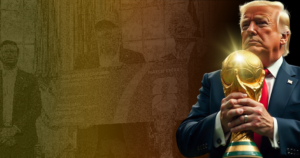When Donald Trump publicly stated that further U.S. support for Javier Milei’s government in Argentina would depend on victory in the upcoming mid-term elections it did more than make headlines. It triggered a wave of backlash inside Argentina, with opposition figures branding the remarks as overt interference and even modern-day colonialism. The incident raises broader questions about sovereignty, foreign aid, and how ideological alignment shapes bilateral relations.
The Trigger: Ultimatum and Backlash
During a White House meeting on October 14, 2025, Trump told reporters in presence of Milei that “if he doesn’t win, we’re gone” in reference to U.S. support for Argentina. That ultimatum followed the announcement of a $20 billion currency swap line from the U.S., part of a potential $40 billion lifeline to Argentina. In Argentina the reaction was swift. The hashtag #PatriaOColonia (“motherland or colony”) trended on social media, reflecting deep anxieties about the country’s autonomy. Opposition figures, including leading Peronist Jorge Taiana, accused the U.S. of extorting the Argentine people and treating Argentina as a sub-servient state.
Implications for Argentina’s Sovereignty and Domestic Politics
From a sovereignty standpoint the message resonates disturbingly: economic support tied to electoral outcomes raises the spectre of conditional assistance that undermines domestic democratic choice. As one political scientist in Argentina observed the remarks may galvanize a backlash among “people who are well informed”. Domestically this could strengthen the hand of the opposition – particularly the long-standing Peronist movement – which argues that Argentina must avoid becoming a U.S. proxy. The timing is sensitive. Milei’s ruling coalition already suffered a significant electoral defeat in the Buenos Aires province in September, which cast doubt on his ability to advance his radical reform agenda. In this context U.S. pressure may inadvertently bolster Milei’s anti-imperialist narrative, galvanising voters who resent foreign influence.
Regional and Global Ripple Effects
The episode transcends bilateral tensions. For the United States it reveals a transactional dimension of foreign policy: ideological alignment and regime stability appear packaged with financial support. For Argentina it underscores the strategic value of your alignment. Argentina, with major lithium reserves, agricultural exports and a key position in Latin America, represents more than a simple client state – yet the optics suggest otherwise. One analyst noted that in Milei the U.S. gains a loyal ally amid Latin America’s more adversarial governments. More broadly this incident feeds into larger debates about whether aid, swaps and interventions are used to advance geopolitical agendas, complicating the notion of “helping a neighbour” with questions of motive and autonomy.
Political Risk and Economic Fallout
Politically the fallout for Milei is two-fold. On the one hand, he gains U.S. backing which can stabilise his reform agenda and provide breathing-space for his economic shock measures. Yet on the other hand, this close alignment with Trump exposes him to criticism that he is sacrificing national autonomy for foreign patronage. Economically the risk is visible: markets cheered the support but will watch closely whether this lifeline is contingent on the electoral outcome. Financial markets are sensitive to political risk, and if the perception of foreign influence over domestic politics grows, investor confidence may falter. The conditional nature of the support adds a layer of uncertainty around the reform programme.
A Final Note
What began as a seemingly straightforward political-economic partnership has morphed into a debate about colonialism, sovereignty and the limits of conditional aid. Trump’s public ultimatum may strengthen Milei’s hand with the U.S., but it simultaneously energises opposition forces and deepens scepticism about Argentina’s independence. For both countries the episode offers a cautionary lesson: the more foreign assistance is tied to electoral outcomes the more forcefully questions of legitimacy, autonomy and long-term stability will surface.













